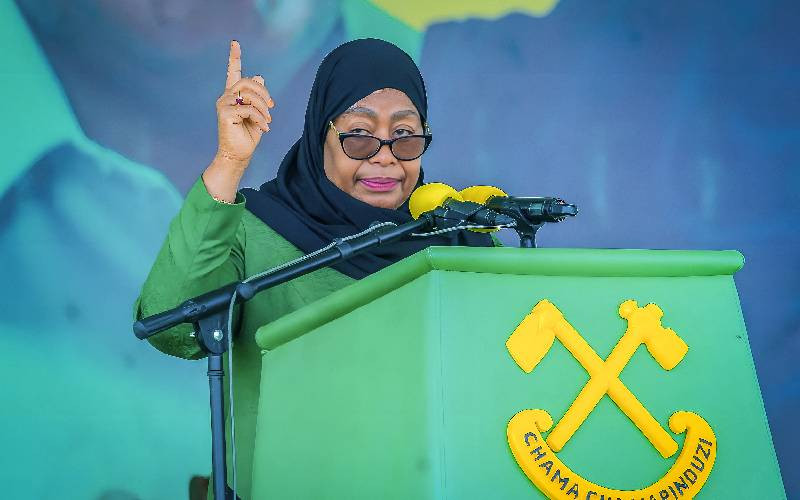Archbishop of the Catholic Archdiocese of Dar es Salaam, the Most Rev Jude Thaddeus Ruwa’ichi, gave a very moving tribute to the lives lost in the Tanzanian post-election violence last month emphasising the centrality of life as a God-given gift that no one has a right take. He was exceptionally categorical that the brutality meted out on innocent Tanzanians was unwarranted as the law enforcers would have arrested those considered to have violated the law.
What caught my attention is the Archbishop’s call to the government of Tanzania that there is no peace without justice. He wondered that either through ignorance or deliberate intention people focus on peace without the fundamental principle of justice. Killing people has no forgiveness before God. His way forward was in no doubt; a call to justice and truth.
We have seen and lived it all in Kenya, as happened in 2007. However, much as the government of the day tries to create alternative narratives, the truth refuses to take cover. Many Tanzanians are going through disturbing reflections painfully wondering what became of their country due to the brutalisation of their people. And, many of us, non-Tanzanians, are still struggling to see that the country we have always used to criticise our own countries is now in the list of bad examples of managing elections.
The sweetness of political power must be poisonous. We are having far too many leaders who, for one reason or another, cannot contend with the wish of the people. They have to be in power even when listening to the wishes of the people they lead would have given them even more legitimacy in not only standing as favourite candidates but also getting the moral support any leader needs to authoritatively govern.
Follow The Standard
channel
on WhatsApp
I have argued here before that African leaders need to understand and internalise three social transformations; they are not going to control with military, police force or other forms of repression.
First, in a globalised world, people are much more enlightened than any other time in the history of humankind. There is more intercommunity, interregional, international and supranational interdependency than ever before. The belief that sovereignty is cover for mass control is long gone.
Second, technology has advanced so much that pretending to switch off the internet and other media outlets at crucial moments such as during presidential vote tallying only undermines legitimacy of the person coming into office. The world today understands only the language of transparency in national processes. Even the massive corruption that goes on in our countries does not mean that citizens don’t know. It is only that they have not figured out how to deal with it once and fall all. A good leader will be so transparent that citizens would happily immortalise him or her in one form or another.
Three, many of the millennials and the generations before them are in denial that there is a complete and irreversible generation in town. The Gen Z and the upcoming Alphas are wired on human rights. It is a complete waste of time targeting government critics because that approach is outdated. Simply put up a super campaign based on wananchi issues. Win fairly and enjoy your leadership.
Lastly, it is nauseating to see one of the political antagonists in a contested political process jumping to be sworn in then call for dialogue. It is hypocritical. The power dynamics favour the person who has already assumed office. While dialogue, especially as defined in religious frameworks, is a better solution to a crisis, political actors can be very mischievous and turn dialogue into another political laundry.
Dialogue is anchored on the principles of truth, justice and peace. A dialogue that deviates from these principles lays ground for a future vicious cycle of violence. As Bishop Ruwa’ichi says there is no peace without justice.
I do not know how Tanzanians would solve their political embarrassment given the global reput
Dr Mokua is Executive Director of Loyola Centre for Media and Communication
Follow The Standard
channel
on WhatsApp
By Elias Mokua


